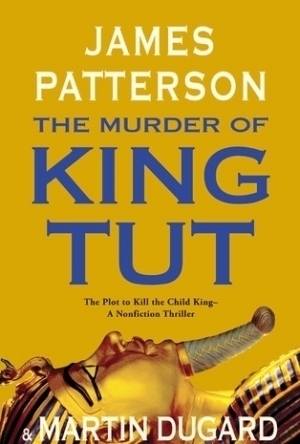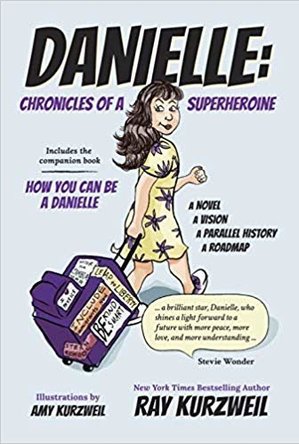
Danielle: Chronicles of Superheroine
Book
USA Today Top 150 Best Seller Publishers Weekly Best Seller Ray Kurzweil, legendary inventor and...
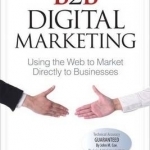
B2B Digital Marketing: Using the Web to Market Directly to Businesses
Book
The only 100% B2B-focused guide to high-profit, low-cost digital marketing! Finally, there's a...
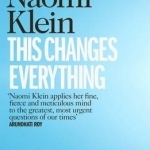
This Changes Everything: Capitalism vs. the Climate
Book
Naomi Klein's new international bestseller This Changes Everything is a must-read on our future, one...
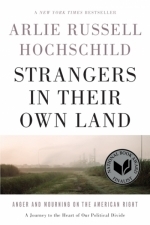
Strangers in Their Own Land: Anger and Mourning on the American Right
Book
2016 NATIONAL BOOK AWARD FINALIST FOR NONFICTION A 2016 NEW YORK TIMES NOTABLE BOOK NEW YORK...
Politics social issues
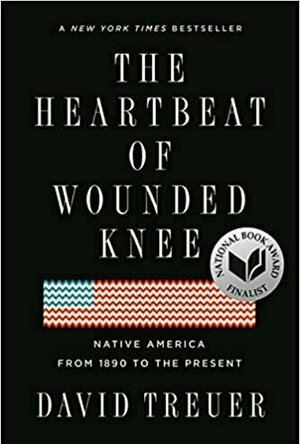
The Heartbeat of Wounded Knee: Native America from 1890 to the Present
Book
An informed, moving and kaleidoscopic portrait... Treuer's powerful book suggests the need for...
Haley Mathiot (9 KP) rated The Murder of King Tut in Books
Apr 27, 2018
Genre: non-fiction thriller
Rating: 4.5/5
Summary: James Patterson tells a story in three parts—one part, the mysterious death of King Tut, the second part the discovery of his tomb by Carter, and the third part his writing, own exploration, research, and discovery of the elusive history of the boy king.
Thoughts: This is one of the best James Patterson books I’ve ever read (listened too). JP has taken an age old mystery and solved it. Yes, it appears as though the mystery of Tut is mystery no more. This book is very alive, even though the plot revolves around a murder. I felt like I was standing right there, watching it all take place. At times, I felt like the characters themselves. This was an amazing escape from reality.
Characters (5/5): Characters should be relatable for a book to be enjoyable, and the characters in Tut’s world were wonderful. They were highly developed right away, and were the kind that either you routed for or hated with a passion.
Writing (4/5/5): James is an awesome writer. I always love reading his work because it’s so lyric. His words flow smoothly and he doesn’t overuse too many phrases (though several “waves” of various things did “wash over” many people).
Content (4/5): There was barely any language in this book, which was a nice change of JP’s work. It wasn’t necessary, either. It just goes to show that the point can be made—and made well—without filthy language. There was a little bit of sex but it wasn’t too graphic, nor was it frequent.
Reader (4/5): I really liked the voice of the reader for this book. I’ve heard some pretty awful ones before, I’ll say that much right now! But Joe’s voice was perfect for this book. The only thing I didn’t like were the voices he put with the characters—the accents were pretty lousy, and when he put on a “fake” voice for the child characters, it just sounded a little silly. I was glad when Tut got old enough that he didn’t have to do that anymore!
Recommendation: Ages 16+ to lovers of fiction, history, nonfiction, thrillers, mystery, or to any James-Patterson-addict.
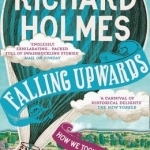
Falling Upwards: How We Took to the Air
Book
'Nominally a history of the hot air balloon, 'Falling Upwards' is really a history of hope and...
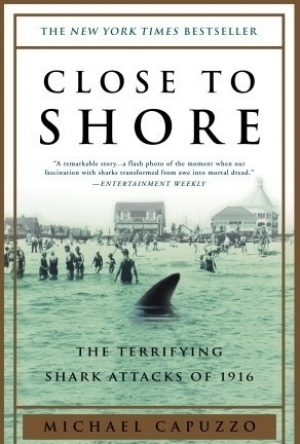
Close to Shore: The Terrifying Shark Attacks of 1916
Book
Combining rich historical detail and a harrowing, pulse-pounding narrative, Close to Shore...
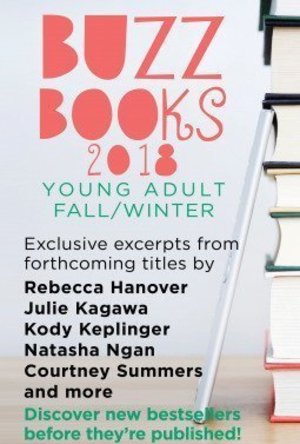
Buzz Books 2018: Young Adult Fall/Winter: Exclusive Excerpts from Forthcoming Titles by Rebecca Hanover, Julie Kagawa, Kody Keplinger, Natasha Ngan, Courtney Summers and More
Book
Our ninth Buzz Books: Young Adult gives readers the special excitement of being among the first to...

